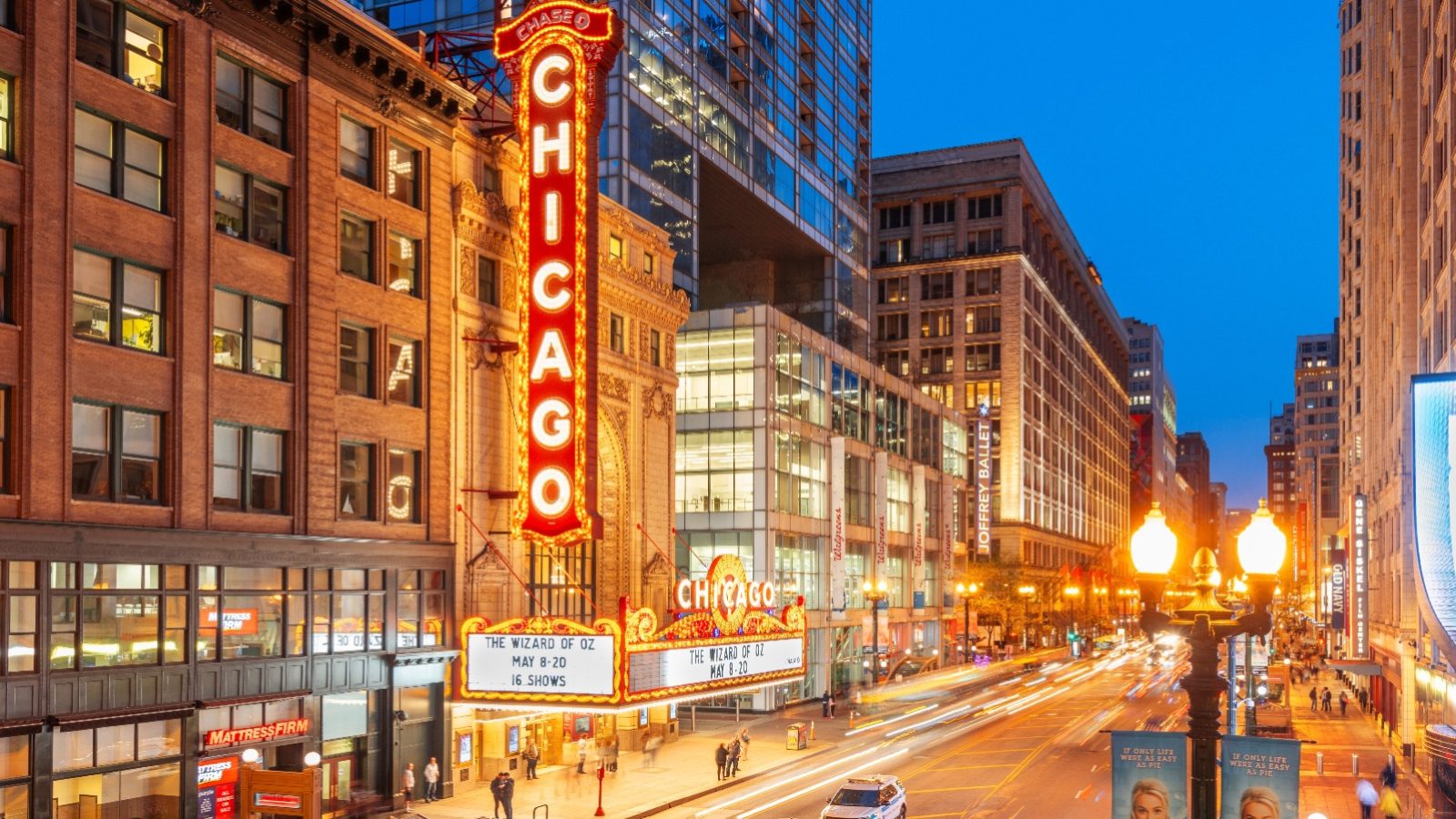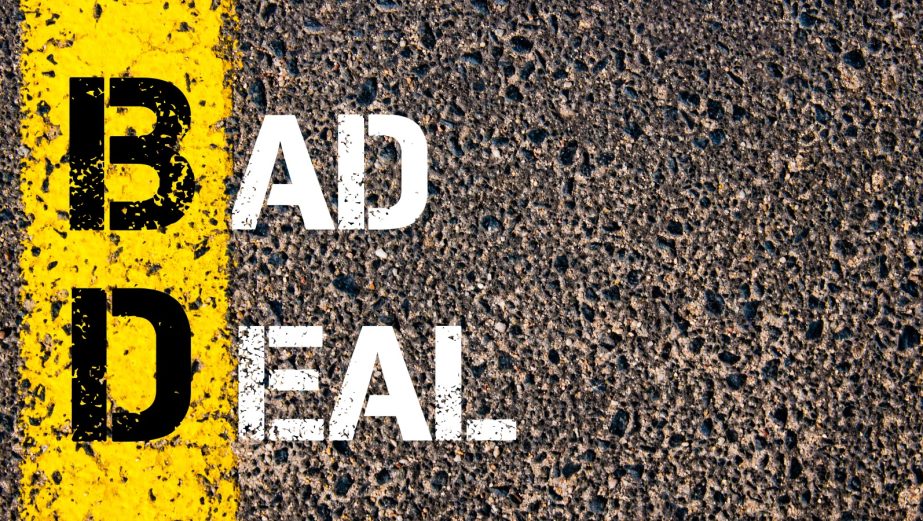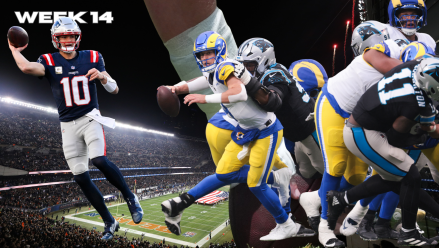After CEOs from DraftKings and FanDuel last week suggested that their products could change in Illinois on the heels of a new statewide per-wager tax, the next potential issue in a state that has more than tripled the digital sports betting tax rate in 12 months is looming.
The Chicago City Council, which won’t meet again until after Labor Day, is considering following the state’s lead and adding its own per-wager tax. Doing so, said one tax policy professional, could finally be a deal-breaker for operators.
“At what point do these sports operators say, ‘You’ve made it so we can’t operate here anymore.’ I worry that that is coming sooner than later,” Adam Hoffer, director of excise tax policy for the Tax Foundation, told InGame. “I think that this pushes the line of whether or not the companies could be profitable or not.”
How much profit any one sports betting operator — be it FanDuel or BetMGM or Hard Rock Bet — makes isn’t public knowledge. Operators report adjusted gross revenue, not profit. The monthly handle and revenue numbers in Illinois are gigantic — in the nine months between September 2024 and May 2025, bettors laid down more than $1.1 billion in handle per month, and operators reported revenue of anywhere between $88 million and $155 million to the state. But neither of those numbers are profit.
Consider this: It’s widely accepted in the industry that profit margins are thin. One lobbyist told the Kansas state legislature that operators earn six cents in profit for every $100 wagered. In arriving at the six cents profit number, the lobbyist considered two taxes — a 10% state tax and the one-quarter of 1% federal excise tax. In Illinois, the state tax is 20% for the smallest operators and 40% for the largest. And that doesn’t even include the new per-wager tax.
‘It’s a big risk. It could all go away’
Major operators say they are carefully watching how things play out in Chicago but have no comment on what their next move will be. The Sports Betting Alliance — comprised of bet365, BetMGM, DraftKings, Fanatics Sportsbook, and FanDuel — has lobbyists on the ground, but they’ve had little success fighting tax increases at the state level. It’s getting more and more difficult for wagering companies to know how to respond to changes in Illinois due to the number, scope, and sometimes unknown effect of how the cascade of change will affect the ability to operate.
What’s clear is that making a profit in Illinois is becoming more and more elusive. And good, old-fashioned economics will dictate when, at some point, there’s no reason to stay.
“The issues are that the real gain from bringing sports betting from illicit markets into the light — even if the market has grown substantially — are (1.) it is done in a manner that [operators] are paying taxes, so that is a win, and (2.) that it is bringing in great tax revenue whether that is to the state or the city of Chicago,” Hoffer said. “It’s a big risk. It could all go away.”
The Tax Foundation is a nonpartisan tax policy nonprofit. According to its website, the foundation’s mission is a “world where the tax code doesn’t stand in the way of success.”
Since Gov. JB Pritzker spearheaded an effort to more than double wagering taxes in Illinois in 2024, the tax rate on adjusted gross revenue has gone from a flat 15% to as much as an effective rate of more than 50%, making it one of the most expensive states for operators to do business in.
Cook County already has an extra tax
Cook County, in which Chicago resides, already adds an extra 2% tax on sports betting revenue. Operators pay that 2% on top of two existing state taxes and a federal excise tax. Chicago’s city council is considering aping the state and then some by adding a 50-cent per-wager tax inside the city limits.
The state legislature passed a similar tax in May. Beginning July 1, operators are now charged a flat 25-cent tax on the first 20 million wagers they take in a fiscal year and 50 cents for all wagers above the 20 million. The new tax is expected to cost the state’s two biggest operators — FanDuel and DraftKings — more than $60 million per year each. Add a similar tax in Chicago, home to 20% of the state’s residents, and they’ll likely be paying another $10 million per year.
Operators will also have more work to do, just as they are now doing for the state. According to a recent Illinois Gaming Board memo, operators must now indicate how many wagers they took in a month and multiply that number by the appropriate amount (25 or 50 cents) to figure out how much they owe for the new tax.
Inside the city of Chicago, a similar exercise would have to take place. Operators already parse out which bets were placed in Cook County and calculate those taxes. If the city council approves the new tax, operators will have to do the same for bets made within the city limits.
A spokesperson for GeoComply, which has deals with the operators to provide geofencing, said that other than labor, the cost to identify and calculate taxes for bets within the city will be minimal from a geolocation standpoint.
“You’re already checking the location of the bettor because these systems are already in place, the location verification is already happening,” GeoComply Senior Vice President for Compliance Lindsay Slader said. “It would be up to the technical providers to collaborate with the operators so their systems work accordingly … but we already tag transactions when doing location checks, and that helps operators adjust” their tax calculations.
While an additional $10 million in taxes for a company as big as DraftKings or FanDuel might not seem like a deal-breaker, it very well could be. (I mean, I’d just retire and call it good if I had $10 million, but sports betting handle and revenue numbers are dizzying.)
Recreational bettors will be hit hardest
“Is [a Chicago tax] the one that will make it all go away?” Hoffer asked. “We don’t know. I wonder how they are operating under some of these conditions anyway. City taxes — it’s easy to avoid them for some things. So if a tax is placed just in Chicago, then if you get outside of the city of Chicago, you can get better terms.”
It may be a little harder for a Chicagoan to leave the city to place a bet than to buy, say, cigarettes or liquor. After all, digital sports betting often happens in the moment — watching a game with friends at home, at a sports bar, or at a game. So leaving the city seems less of an option.
Calling the proposed tax a “revenue grab,” Hoffer said it’s likely the recreational bettors — those wagering $5 or $10 per bet — will be hit the hardest.
It will also potentially be the operators who announced minimum bet limits in Illinois after the state’s per-wager tax went into effect. Hometown BetRivers announced a $1 bet minimum, Hard Rock Digital set its at $2, and BetMGM at $2.50. Should the city implement its proposed tax, BetRivers will pay state and local taxes of 75 cents on a $1 bet, meaning that of the dollar a bettor lays down, the company only potentially gets only 25 cents.
So, if I bet $1 at -110, and win, I’d be paid $1.91 — and BetRivers would be paying out $2.66 to me and the state. If I bet that same $1 at -110 and lose, I’d be paid nothing — and BetRivers would get to keep a quarter.
If I’m betting on FanDuel (before the 20-million mark), I’d be paying $1.75 for that $1 bet, to win 16 cents. That’s assuming FanDuel would pass through a city surcharge the same way it plans to pass through the state per-wager tax. And if I lose? Well, I’m out 75 cents more than I intended to wager in the first place.
Beginning in September, when DraftKings, Fanatics Sportsbook, and FanDuel will begin passing through the state per-wager tax, it will be instructive to see how bettors will react.
“The people this would affect the most on a wager-based tax, it will affect the person who bets small amounts often,” Hoffer said. “I think what you’ll have is those people looking to avoid the tax. Because so much of betting is online these days, I don’t think you’re going to see people running to bookies to make $5 bets, but other sites that are hosted offshore and not regulated by the U.S., sure, it does feel like they are sending people to the illicit market. It will be whatever is convenient for bettors.”
Assuming the legal market doesn’t pack up and go home.






